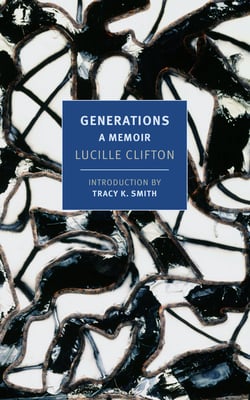[ad_1]
It would be remiss to read Lucille Clifton’s Generations: A Memoir, recently reissued by New York Review of Books, without considering the moment in which this book—Clifton’s sole memoir—was first released. Published in 1976, Generations emerged the year before the miniseries “Roots” aired on national television eight consecutive nights in a row, a year before The New York Times coined Toni Morrison’s Song of Solomon the “Black Family Chronicle,” and the same year in which Black History Month was first nationally recognized, six years after its first celebration. In many ways, Generations anticipated and supported a growing urgency among Black writers and cultural leaders to interrogate the American narrative of Black experience. Indeed, as many Americans watched the first spacecraft land on Mars and the continuation of the Cold War, the narrative around Black identity and experience turned towards its past, pulling with it both individual and collective memory to produce a radically new form. Generations, the only prose piece written by Clifton, exacts this new form to tell the story of her family, of lasting love and indelible bonds, of slavery and desperation, and of an American experience emerging anew.
Dedicated to her father, Clifton anchors Generations around the telling of her family, the Sayles: Caroline Donald, Clifton’s great-great-grandmother a descendant of the Dahomey people, who was “captured and throwed in a boat” and in 1830, at the age of eight, walked north from New Orleans to Virginia; Lucy, Carolines’ daughter, the first black woman hanged in Virginia for killing her white husband; and Gene, the son of Lucy, grandson to Caroline, who was born with a withered arm and grew up without parents. The retelling of their mostly unwritten past is relayed through biographical fragments, brought into focus by family photos that bookend the stories of Caroline, Lucy, and Gene. Clifton’s memoir includes other figures too, like her beloved mother, Thema Moore Sayles, and her father, Samuel Louis Sayles—who believed that all a man needed to do was buy a house, have a son, and plant a tree. Together, their lives and Clifton’s rendering, told in stark poetic prose, weave together a story of genealogy that fully embraces all corners of its past.
Clifton’s great-great-grandmother, Caroline Donald Sales, was born in 1822 in the Kingdom of Dahomey, a West African territory located within present-day Benin. Along with her mother, sister, and brother, Clifton’s great-great-grandmother was captured, enslaved, and brought to New Orleans at the age of eight. From there, she walked with her family to Virginia, where she was sold to a man named Bob Donald and never saw her mother again. Recalling her story through her father’s childhood memories of his great grandmother, Clifton sketches the genesis of her family’s American story, while considering the feel of the “Dahomey women gathering in [her] bones.” While Clifton notes that Caroline Sales was the “last of her line,” the repetition of the telling of her great-great grandmother’s journey from New Orleans to Virginia at only eight years old works to elongate her narrative, such that Clifton’s father’s memories echo an experience that otherwise isn’t captured in the family archive: “I was eight years old when [Caroline] died. When I was eight years old. I remember everything she ever told me, cause you know when you that age you old enough to remember things.” What had Caroline experienced at eight walking from New Orleans to Virginia? What had she been old enough to remember? What too did her grandson, Samuel, carry in his bones and recollections? Clifton’s gesture suggests much—possibly more than has ever been recorded, preserved, or archived. And yet, it’s still there; Clifton is “named for Dahomey women” too.
The question about our relationship to history is a fragile one. For Clifton, the fragility is not simply in the sparse record of her family—which includes dates, places, and names—but in the experience of Black American narrative in relationship to a dominant, mostly white narrative of American experience. The invocation of Walt Whitman throughout Generations suggests that “Song of Myself,” as Tracy Smith notes in her forward, is “no longer a familiar American music, but an invitation to a radical configuring of self.” The project of radical configuration is not simply to relay the lives of her ancestors but, rather, for Clifton, is a suggestion that “[t]hings don’t fall apart” and that the “lines connect in thin ways that last and last.” To the American narrative—one that has its roots in white, aspirational notions of storyhood—Generations proffers a counter: the American self is incomplete without the stories that include the origins of Black Americans.


NONFICTION
Generations: A Memoir
By Lucille Clifton
New York Review of Books
Published November 16, 2021
[ad_2]
Source link

